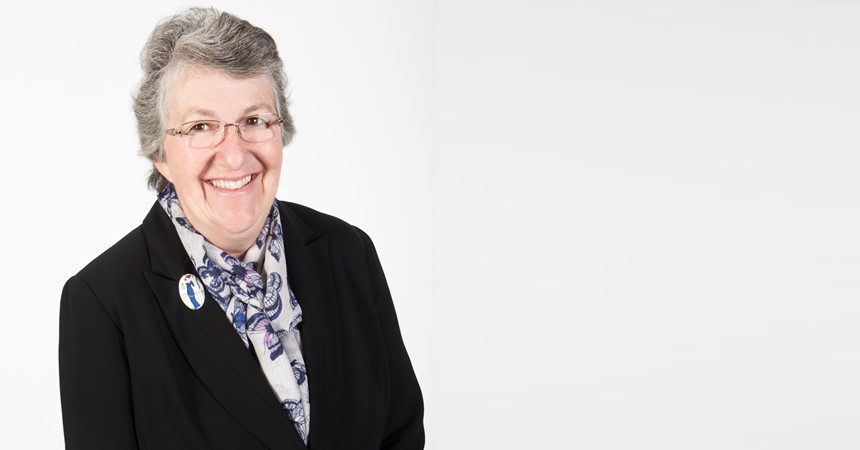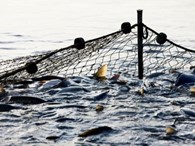 However, Jesus joins them and they cast out their net, catching many fish and then sharing a meal of bread and fish on the shore. Then, Jesus asks Peter three times, “Do you love me?” Jesus follows these questions by asking him to act out that love by feeding his lambs, looking after his sheep and then feeding his sheep.
However, Jesus joins them and they cast out their net, catching many fish and then sharing a meal of bread and fish on the shore. Then, Jesus asks Peter three times, “Do you love me?” Jesus follows these questions by asking him to act out that love by feeding his lambs, looking after his sheep and then feeding his sheep.
Peter’s denial is turned around by Jesus to be a love of action, of doing, of being a disciple.
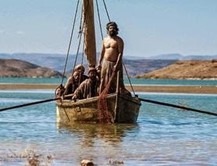 I was invited to take on the role of Vice Chancellor Pastoral Ministries in August 2005 by Bishop Michael Malone. In 2006 Bishop Michael, asked me to go to a meeting of the Newcastle L’Arche community. Since then I have continued to explore what partnership may emerge between the diocesan community and the L’Arche community. I can imagine the possibilities but need others to share in this dream.
I was invited to take on the role of Vice Chancellor Pastoral Ministries in August 2005 by Bishop Michael Malone. In 2006 Bishop Michael, asked me to go to a meeting of the Newcastle L’Arche community. Since then I have continued to explore what partnership may emerge between the diocesan community and the L’Arche community. I can imagine the possibilities but need others to share in this dream.
Up until now, most people are unaware of the wonderful organisation known as L’Arche (The Ark), which was founded by Jean Vanier in Trosly, France, in 1964. He met and became friends with two men who were living in an institution, because their parents had died and they both lived with an intellectual disability. Jean invited them to live with him and together create a nurturing home environment. Fifty years later, L’Arche Australia is part of the International Federation of L’Arche, comprising more than 140 communities established in 40 countries. These communities are made up of people living in community (households) with and without intellectual disabilities and sharing their lives. As communities, they emphasise mutual relationships, believing and trusting in God who is at the heart of their journey.
So to become human implies two realities. It means to be someone, to have cultivated gifts, and also to be open to others, to look at them not with feelings of superiority but with eyes of respect. It means to become men and women with the wisdom of love. (Jean Vanier, 1989)
 It is my hope that you have noticed the invitation to join with the L’Arche Community on Saturday 30 April, for an afternoon of information, sharing, food and fun. It is also my hope that those who are not connected with L’Arche, those with and without disabilities, will come along and explore the possibility of joining this community of relationship. Part of the vision of L’Arche states:
It is my hope that you have noticed the invitation to join with the L’Arche Community on Saturday 30 April, for an afternoon of information, sharing, food and fun. It is also my hope that those who are not connected with L’Arche, those with and without disabilities, will come along and explore the possibility of joining this community of relationship. Part of the vision of L’Arche states:
We celebrate the uniqueness of every person, we value him or her for who they are and we recognise our need for each other. We support people to create respectful relationships with each other; relationships where people treat each other as of equal value. This enables people to feel secure in themselves, and offers them the freedom for growth and personal development and freedom to become more fully the people they want to be.
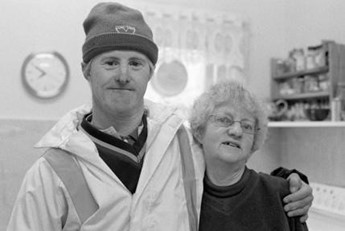 The emphasis is on the mutual benefit, for those with a disability, and those without. You may know that our CatholicCare provides support for people with disabilities, in five supported accommodation houses. Two of the women from one of these houses came along, with one of the carers, to assist us with the Chrism Mass and then stayed. They were delighted to be with us, and we were happy they joined us. We would like to develop this aspect of community engagement with those who are living in our supported accommodation. L’Arche may be the way.
The emphasis is on the mutual benefit, for those with a disability, and those without. You may know that our CatholicCare provides support for people with disabilities, in five supported accommodation houses. Two of the women from one of these houses came along, with one of the carers, to assist us with the Chrism Mass and then stayed. They were delighted to be with us, and we were happy they joined us. We would like to develop this aspect of community engagement with those who are living in our supported accommodation. L’Arche may be the way.
At home is then about relationships, about bonding, about creating a sense of family where each person can feel free to grow and develop. (Jean Vanier)
Doing or Being – In the end, the most important thing is not to do things for people who are poor and in distress, but to enter into relationship with them, to be with them and help them find confidence in themselves and discover their own gifts. (Jean Vanier)
Sharing stories has become an essential feature of life within L’Arche Communities and forms the basis for developing lasting mutual relationships. One such process is known as Remembering, Celebrating and Dreaming. When I came across this it drew me back to the messages I have been sharing with you over the past few weeks, where I have been attempting to link with the dreaming of our indigenous people and the notion of the importance of our own tribes. Clearly this movement is about spending time, listening and sharing stories. I imagine that is what happens in many of your own family homes.
At a meeting a few weeks ago with key members of the L’Arche Community, I was given a book, My Home in L’Arche – Stories from L’Arche Communities in Australia. The essence of this book is shared stories and photos. Music and artistic creations form an important part of L’Arche.
So please consider joining us or inviting others, particularly the young who are looking for community, to come along and give it a go. As Jean Vanier says:
I am touched today by young people who are in love with noble ideas; ideals for justice for poorer countries, ideas for protecting the environment, spiritual ideals, ideals for peace and of compassion for people who are in pain.
The following ideal is captured on one of their brochures:
We live together as a sign of hope that people of diverse intellectual abilities, social origins, religions and cultures can come and live together in unity, faithfulness and reconciliation. We invite you to join us in Community and share your skills, energy and creativity with us.
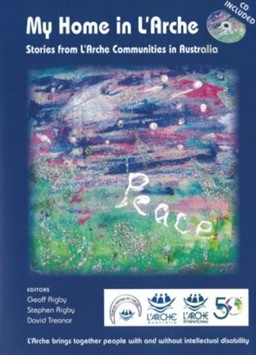 Hunter Friends of L’Arche, a community of about 30 people with and without intellectual disabilities, identify three core activities for the creation of community:
Hunter Friends of L’Arche, a community of about 30 people with and without intellectual disabilities, identify three core activities for the creation of community:
- Eating together around the same table
- Praying together
- Celebrating together – to laugh, to fool around, to have fun, to give thanks together for life.
They are yet to establish a community living the L’Arche vision − one or more homes so that some people with an intellectual disability within the Newcastle/Hunter area could live with assistance as a L’Arche family.
The core mission of L’Arche is
- To make known the gifts of people with intellectual disabilities, revealed through mutually transforming relationships.
- To foster an environment in community that responds to the changing needs of members, whilst being faithful to the core values of the founding story
- To engage in diverse cultures, working together toward a more human society.
Pope Francis’ voice says it all, “be a church of the poor for the poor”. I wonder if we are able to respond to the questions Jesus asked Peter in this weekend’s gospel – do you love me? We must be more than a worshipping community of believers. We must go out, reach out and make a difference, to witness to Jesus and not retreat, as the disciples were trying to do.
In this Year of Mercy, we must contemplate mercy and be merciful. I hope you might take the time to come along and encounter the experience of L’Arche or invite others, particularly those with a disability, to join in.
Jean Vanier imagined a new way over fifty years ago.
Fr Richard Shortall, our MoM, (Missionary of Mercy) is in the Upper Hunter and will be at Aberdeen this week. He is a missionary for everyone. If you are in the Upper Hunter please take the time to connect with Fr Richard but also invite anyone to encounter this face, ears, voice and heart of God’s mercy. We are all in this together.
